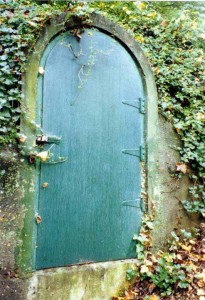I really do have a problem with time. My father told me—Drat! I can’t get the words out and time is just flying by—OK, chill—that his grandfather had a thing about time, that it was passing by too fast. I happened to have inherited that. My father and stepmom had this beautiful Russian mantel clock that his family picked up in Philadelphia around the turn of the last century, maybe earlier—in other words, it came from czarist Russia. It is rectangular, glass in an ornate gilt case, about a foot high. My great grandfather would not allow anyone to wind that clock. And so it sat until it came into my father’s hands. My father wound it meticulously. That clock, whenever I see it, reminds me that time is running out—and, yet, I know it’s only in my mind.
Our brain, it seems, creates its own time, inner time, not clock time, and this inner time guides our actions, according to this March 7, 2008 New York Times piece, “Time Out of Mind.” We get stressed—time is money—and in our perceived lack of time, we stress and take more time to complete a task—we make mistakes, feeling pressed to rush through things.
One rainy night at closing time I was rushed to leave the retail store where I worked so I could make my ride home. My driver dropped me off in front of my house and drove on. That’s when I realized I didn’t have my keys. It was pouring rain, the time was somewhere around 11 p.m. and I didn’t have a cell phone. My keys were on the store checkout counter where I had laid them when I put on my coat. I live alone and I was locked out.
My hidden key wasn’t where I thought I had hidden it. I don’t know what happened to it. The minutes of all the clocks in China and elsewhere on earth ticked away as I stood on my porch, under the roof out of the rain, pondering my dilemma. I decided to ask my neighbor across the street. He’s a young guy and maybe could help me get in somehow, like forcing a window. I rang the doorbell. The door opened. Thank goodness someone was up. It was his mother. He wasn’t home. He was at work and wouldn’t be home until 5 a.m.
His mother let me use her cell phone. I called a friend. His number is easy and I pulled it out of my mind. He was my assistant manager at the store. He is a close friend and lived close by, two miles from me. He had the night off. He had already gone to bed, but he answered his phone despite his not recognizing the calling number. He was at my house in no time—ten minutes—and drove me to the store, unlocked the door, let me in and I got my keys.
He brought me home. We sat in the car and talked for a few minutes, not long, for it was late, after midnight by now. We are kindred spirits. He was born 55 years after I, yet we feel no sense of the space of time between us. Sometimes I feel we traveled across time to each other so we could meet again. We share a favorite song by Snow Patrol—“Chasing Cars”: “If I lay here, if I just lay here, would you lie with me, and just forget the world?”—no stress about time. We like to drink dark Roman wine, and we like “Dark Roman Wine,” the song, again by Snow Patrol. He is sweeter than the darkest Roman wine. And every time, he beats me at Monopoly.
The Russian clock remains in our family. It has meant a lot to my brother and me over our long lifetimes. It’s in the hands of our generation-younger sister now. The hands of the clock return to twelve o’clock, straight up, every twelve hours. It runs on a routine. It is predictable. Unexpectedly, my friend left one day in January. He texted me that morning: “You should know….” A thing happened and there was a job in another state. He had to go away. Where he is precisely I am not certain; he is out of reach. He’s been gone months. I miss him. He has meant a lot to me over our brief four years together in this lifetime. Like the clock’s hands, like the hours, after a time, will he return? I cannot predict.
I stumbled upon a song Gillian Welch wrote with her partner David Rawlings, “The Revelator,” “Time’s the Revelator.” Isn’t it just.
—Samantha Mozart
May 29, 2022
}{
This piece will be published in my new book of essays, Leftover Bridges.





